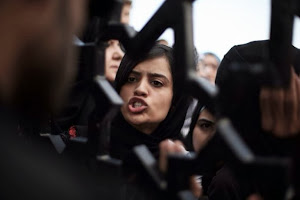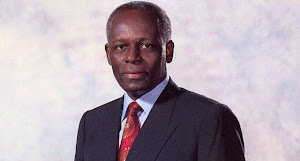President Obama’s August 31st remarks from the White House Rose Garden will long be remembered for their strangeness, but the final interpretation of their significance will have to await months if not years.
 |
| Richard Falk |
There are three dimensions, at least, that are worth pondering: (1) seeking Congressional authorization for a punitive military attack against Syria in support of the treaty prohibition on recourse to chemical weapons in an armed conflict; (2) reconciling any endorsement of an attack by Congress with United States obligations under international law and with respect to the United Nations and its Charter; (3) assessing the degree to which American war making prerogatives continue to operate within an unacceptable domain of American exceptionalism.
In framing the issues at stake Obama set forth the fundamental policy choices in a rather incoherent manner:
- First of all, he asserted that on the basis of evidence available to the United States Government, that the Assad regime was without doubt responsible for the massive chemical weapons attack of August 21st directed at the Ghouta residential neighborhood on the outskirts of Damascus, and causing over 1,000 civilian deaths, including several hundred children. The Russian president, Vladimir Putin, clearly articulated the grounds for skepticism about this American construction of the Ghouta atrocity. He put forward a strongly worded request that the allegations be confirmed by the release of convincing evidence. This is a reasonable demand. Many around the world have questioned why Assad would launch such a provocative attack to coincide with the arrival of UN inspectors, and when the battlefield balance was tipping in favor of the Damascus regime. All along such important figures in the Obama administration, especially John Kerry and Joe Biden, have arrogantly dismissed the relevance of any information provided by the UN inspection team. In light of the gigantic deception relating to Saddam Hussein’s supposed weapons of mass destruction (WMD) arsenal, which was more politely described long after the event as an ‘intelligence failure,’ it would have been appropriate for Washington to admit that it has a credibility problem in winning governmental and popular support for an attack on Syria. Its refusal to acknowledge such an issue merely deepens suspicions.
- Secondly, Obama informed listeners that “..after careful deliberation, I have decided that the United States should take military action against Syrian regime targets.” He added that he made this decision “as Commander-in-Chief on what I am convinced are our national security interests.” This conclusion was explained to rest on the importance of punishing such a crime against humanity and deterring future recourse to chemical weapons and other weapons of mass destruction by Syria, as well as sending a message to Iran and North Korea about America’s readiness to use force to uphold such norms of international law.
- Thirdly, there was no effort in Obama’s remarks to show why, absent a UN mandate, the United States in coalition with a few other countries, had the legal authority to attack a sovereign state in a circumstance other than self-defense.
- Fourthly, although the decision against involvement by the British Parliament was noted, there was no consideration as to whether such an outcome should bear on American policy. Nor was the German or Italian unwillingness to join in the attack noted, nor that of the Arab League. But the French support was duly appreciated, including a dig at the United Kingdom, by reminding his listeners around the world that it was France that was America’s “oldest ally.” (It is worth noting that the roles of these two European friends were directly reversed in the context of the Iraq War; then, it was the French more conservative led government that opposed participation, while now a socialist leader in Paris supports an attack against Syria).
- Fifthly, and in the most dramatic passage in the speech, Obama announces that because the United States is a proud democracy he has made “a second decision: I will seek the authorization for the use of force from the American people’s representatives in Congress” by calling for a debate and vote. No mention is made of a time frame, nor how he would react in the event that authorization was not forthcoming. Such an eventuality would set up a potential tension between his duties to uphold national security and an obligation of deference to a decision by Congress on the vital matter of authority to wage war. Obama touched all the bases by saying, “Yet, while I believe I have the authority to carry out this military action without specific congressional authorization, I know that the country will be stronger if we take this course, and our actions will be even more effective.” In effect, there is no constitutional legal requirement to obtain Congressional authorization, but doing so will create a more effective response. But what if authorization is withheld? Or Congress is split with approval by the Senate, and disapproval by the House?
- Sixthly, there is an implicit endorsement of American exceptionalism. After saying that the case for an attack will be made internationally, as well as domestically, Obama reaffirms a national prerogative of illegal unilateralism. He uses this phrase: “But we are the United States of America, and we cannot and must not turn a blind eye to what happened in Damascus.” That is no matter that others disagree, the United States alone has the duty to act as it sees fit. It is correctly presumed that such discretion is not vested in other sovereign states. Otherwise the world would be in flames. In effect, Syria, Iran, North Korea are bound by international law, as interpreted by the United States, while the United States and its closest allies are guided by assessments of their national security interests.
It is this double standard that is at the core of American exceptionalism, and also underpins the debate as to whether it is more instructive to view the United States as ‘global leader’ or ‘imperial power,’ or possibly some blend;
There is something rather sinister about announcing an intention to strike a vulnerable country with which the United States is not at war, coupled with the announcement that the needed military capabilities are in place, but will not be used until convenient; in effect, a lethal strike against Syria can take place at any point from now on until a time weeks or months from now, depending only on the workings of the internal American political process and the disposition of its Commander-in-Chief. If this is deemed to be in the interest of the Syrian people, I would like to know how.
Even if the controversy as to the facts is ignored, and theproblems associated with double standards as to the relevance ofinternational law to the use of force, there are some other reasonsfor concern about the approach adopted by PresidentObama:
- It denies constitutional status to the request for Congressionalauthorization, making it a discretionary presidential judgment callthat is not necessitated by the Constitution, but is an expressionof Obama’s belief in democratic procedures. To not rest thisrequest on the Constitution itself is a missed opportunity, andthus amounts to yet another reassertion of excessive authority bythe Executive Branch of government;
- Itmakes no effort to assess what would be of benefit to the people ofSyria, and rather makes the case for a narrow strike as acombination of punishing (without intending to displace) the Assadregime and abstract American national security interests in itsself-appointed role as preventing the use and spread ofWMD;
- Itfails to advocate in a serious manner a diplomatic approach toending the violence of the conflict by calling for a second Genevaconference with the full participation of Iran that would deal withregional peace and security issues, as well as the war inSyria;
- Itundermines the authority of the UN and international law by vestingin the U.S. Government the final word on when it is appropriate touse international force in non-defensive modes and fails to makewar a matter of ‘last resort’;
- It draws an overly sharp a distinction between this incidentinvolving chemical weapons and other massacres that have occurredduring the course of two years of strife in Syria; regardless ofthe weaponry deployed both forms of violence are crimes againsthumanity that deserve a serious and effective response, ifavailable.
*******************************************************************
It is as yet possible that Congress will rescue Obama from havingto respect a red line he ill-advisedly proclaimed a year ago. Itwould be ironic if this one time the anti-Obama Republicans savedhim from the worse foreign policy excess of hispresidency!
It is possible that Obama will be pushed by pro-interventionists tooverride a Congressional failure to give authorization. It is alsopossible that Congress will authorize, and public opinion stronglyoppose. And we are left to wonder whether Congress canconstitutionally authorize a use of force that violatesinternational treaty law. Of course, we would be unlikely to findout given the passivity of the U.S. Supreme Court when it comes tochallenges directed at legally dubious foreign policy and nationalsecurity matters.
All of the above suggests that the revitalization of Americanrepublicanism requires, as a matter of urgency, a constitutionalconvention with an explicit mandate to restore the separation ofpowers and checks and balances in relations to war/peace issues.The U.S. Government has longed strayed from this vital pillar ofrepublican democracy.
Nothing would do more to restore confidence in the United States asa global leader! Such a momentous event will not happen withoutmassive grassroots pressure; it will never be decreed from onhigh.
A final word of blurred appreciation: CNN talking heads are veryfond of referring to Obama as epitomizing ‘the reluctant warrior.’And reluctant he is, but also warrior he has been, and continues tobe, casting a rather dark shadow over the Nobel Peace Prizedecision process. The reluctance is articulated over and over againin his words and sometimes reflected in his policies, and certainlyseems sincere. And such reluctance may be credited, at leastsubconsciously, with this welcome move to broaden the domesticauthorization process with respect to this non-defensive use ofinternational force. Obama would deserve less ambiguous praise ifhe had recognized the role of Congress prior to the decision of theBritish Parliament. And prior the many demands from Congress for agreater role gathering political momentum.More
___________________________
Editorial
I question how the international community can discipline a States Party to the United Nations for acting unilaterally? States that carry out drone strikes, committing extra-judicial killings, allegedly as part of their war on terror, a 'war' that the said state may be at least partially responsible for causing.
There has to be accountability, or as Richard Falk points out; Obama reaffirms a national prerogative of illegal unilateralism. He uses this phrase: “But we are the United States of America, and we cannot and must not turn a blind eye to what happened in Damascus.” That is no matter that others disagree, the United States alone has the duty to act as it sees fit.
The international community must uphold the Rule of Law, the United National and all International Organizations have an obligation to uphold the Rule of Law. The mandate of the Geneva Conventions must be upheld. I argue that it is a human right for all states to be held accountable and for there to consequences for illegal actions. Editor









